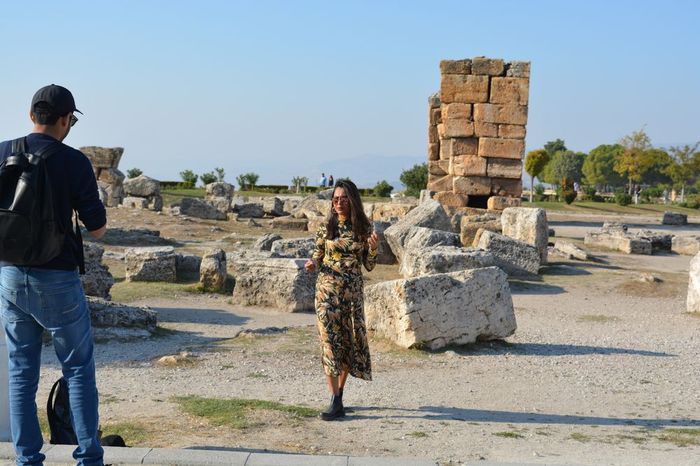Domitian’s wife was of free birth and otherwise noble; and neither had she herself ever done wrong to anybody, nor had she assented in her husband’s acts. Wherefore she was dearly loved; and the Senate sent for her, when Domitian died, and commanded her to ask whatever boon she wished.
But she asked only this: to set up in his memory one brass image, wherever she might desire. To this the Senate agreed. Now the lady, wishing to leave a memorial to future time of the savagery of those who had butchered her husband, conceived this plan: collecting the pieces of Domitian’s body, she joined them accurately together and sewed the body up again into its original semblance.
Taking this to the statue makers, she ordered them to produce the miserable form in brass. So the artisans forthwith made the image, and the wife took it, and set it up in the street which leads to the Capitol, on the right hand side as one goes there from the Forum: a monument to Domitian and a revelation of the manner of his death until this day.
Justinian’s entire person, his manner of expression and all of his features might be clearly pointed out in this statue.
Now such was Justinian in appearance; but his character was something I could not fully describe. For he was at once villainous and amenable; as people say colloquially, a moron. He was never truthful with anyone, but always guileful in what he said and did, yet easily hoodwinked by any who wanted to deceive him.
Peripatetic philosopher
His nature was an unnatural mixture of folly and wickedness. What in olden times a peripatetic philosopher said was also true of him, that opposite qualities combine in a man as in the mixing of colors. I will try to portray him, however, insofar as I can fathom his complexity.
This Emperor, then, was deceitful, devious, false, hypocritical, two-faced, cruel, skilled in dissembling his thought, never moved to tears by either joy or pain, though he could summon them artfully at will when the occasion demanded, a liar always, not only offhand, but in writing, and when he swore sacred oaths to his subjects in their very hearing.
Then he would immediately break his agreements and pledges, like the vilest of slaves, whom indeed only the fear of torture drives to confess their perjury. A faithless friend, he was a treacherous enemy, insane for murder and plunder, quarrelsome and revolutionary, easily led to anything evil, but never willing to listen to good counsel, quick to plan mischief and carry it out, but finding even the hearing of anything good distasteful to his ears.
Read More about The Secret History part 23








